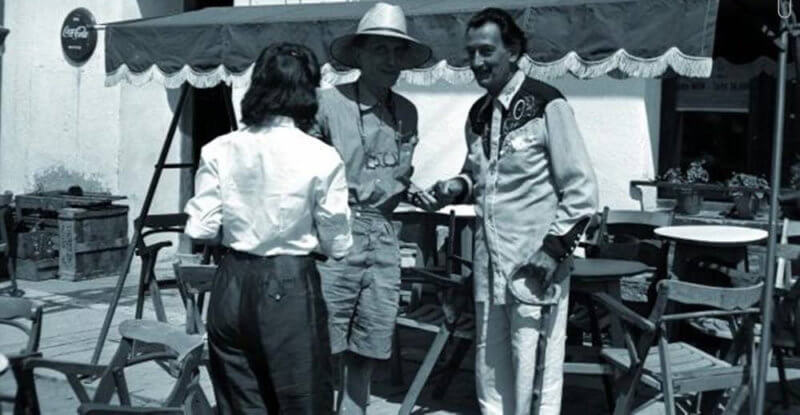Like Marcel Duchamp, Leontxo García thinks about the game of chess day and night. A chess player and the editor of the chess section in El País, he is also the author of La bitácora de Leontxo in the same newspaper. On the occasion of the exhibition Endgame: Duchamp, chess and the avant-gardes, his article for our blog addresses Duchamp’s passion for chess and explains how the artist believed an entire lifetime was not enough to achieve perfection in this game.

Art in Check: Passion and Obsession
‘I play chess day and night. I like painting less and less,’ stated Marcel Duchamp in 1923 after finishing one of his great works, Le Grand Verre (The Large Glass). His obsession was one of the main reasons for the failure of his first marriage, to Lydie Sarazin-Levassor – who went so far as to glue the pieces onto the board to stop the painter from analysing moves until dawn during their honeymoon. It is impossible to separate the painter from the chess player, because Duchamp’s art was always in check, and he viewed this mental sport as a source of creativity.
‘While not all artists are chess players, all chess players are artists.’ Duchamp knew what he was talking about. If we were to assemble a team with the best chess-playing painters in history, Duchamp would definitely be on the first board: he played for France in four Chess Olympics, won several tournaments, and had a draw in 1930 with U.S. player Frank Marshall, one of the greatest in the world.
Duchamp sat at the same table every day at 6 p.m. at the Bar Melitón in Cadaqués during the summers of the sixties, until shortly before his death in 1968. One of his famous and faithful friends during those times, Enrique Irazoqui, known above all for his role as Jesus Christ in Pasolini’s film The Gospel According to St. Matthew, recalls: ‘During those hours he didn’t talk about anything other than chess. Famous artists like John Cage, Dalí, or a very young Félix de Azúa knew that the only way to approach their admired Duchamp was through chess. In fact, Duchamp’s second wife Teeny and Cage hired Raymond Keene, the chess expert from The Times, to give them classes. He was a good friend of Dalí’s, but one day, when Dalí and Gala announced their arrival on a boat, Marcel asked me to get rid of them for him, so he wouldn’t be distracted from his great passion.’
Chess is the perfect application of Socrates’ statement ‘I know that I know nothing’; not even today’s most powerful computers are capable of playing perfectly. Duchamp knew that a lifetime was not long enough to fully enjoy chess; that is why he milked it for all it was worth until he merged it with his art.




